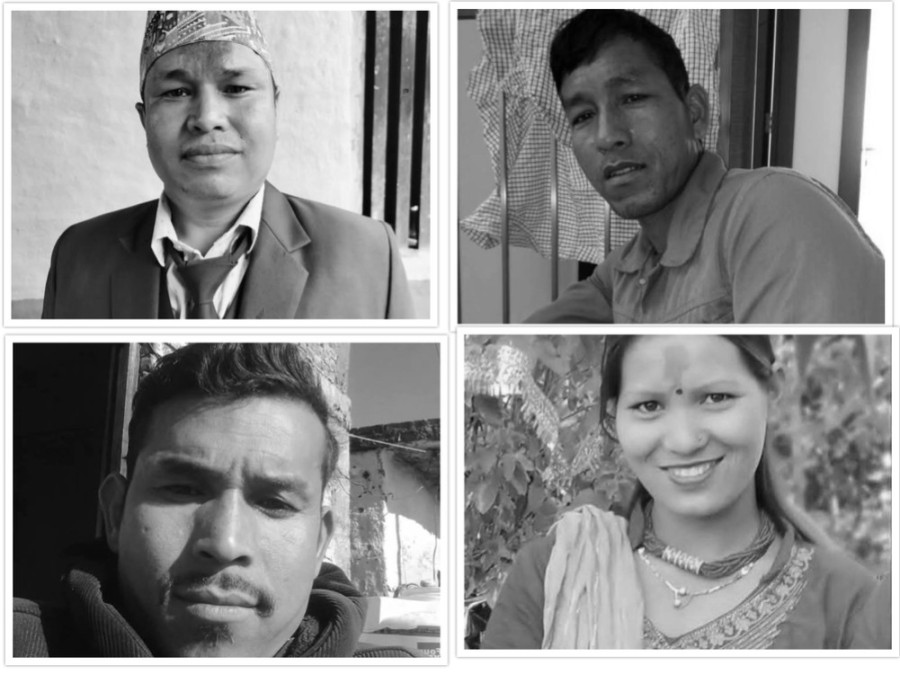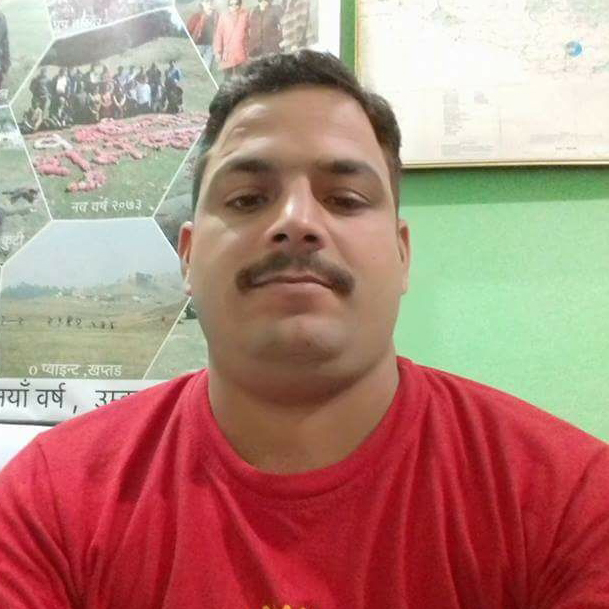National
Dashain plans shattered in Shimla jeep accident
Four Nepali migrant workers died and three injured when their vehicle tumbled into a gorge in Himachal Pradesh, India on Monday.
Bhawani Bhatta & Biplab Maharjan
Four Nepali workers, including three members of the same family from Basnetjyula in ward 4 of Kumakh Rural Municipality, Salyan, died in a jeep accident at Kotkhai in Himachal Pradesh, India, on Monday. The deceased have been identified as 47-year-old Dilli Bahadur Shahi, 37-year-old Ekendra Shahi, 24-year-old Laxmi Shahi, and 37-year-old Rajesh Bista. Three others—Nep Bahadur Shahi, Sajan Shahi, and Hemant Shahi—sustained minor injuries and were discharged after treatment.
According to police, the accident occurred when the Nepali workers were travelling in a jeep from Ramnagar toward apple orchards to transport fruit. Laxmi Shahi and the driver, Jogendra Singh Dogra—the orchard owner—were inside the vehicle, while six other Nepali workers sat on the roof as the back was filled with empty crates. While reversing on a narrow bend to give way to another vehicle, the jeep lost control and plunged into a gorge.
“We only realised what had happened after we fell onto the road below,” recalled survivor Nep Bahadur Shahi. “I don’t know what exactly went wrong while reversing. It all happened so fast.” According to him, Laxmi, Ekendra, and Rajesh died on the spot, while Dilli Bahadur died during treatment at a hospital in Shimla.
The deceased had planned to return home for Dashain after finishing seasonal work of harvesting, grading, and transporting apples within one to one-and-a-half weeks. “We thought we could finish the season, then return for Dashain,” said an injured worker. Laxmi and Sajan Shahi were married and had been working seasonally in Shimla’s apple orchards and related jobs for two years, while the others had arrived just a month earlier.
“We used to work in Anni Bazar in Shimla, repairing water tanks and installing pipelines,” said Nepa Bahadur. “When that work stopped, we came here for apple transportation. It had only been a month, and then this tragic accident happened.” He added that the injured were immediately rescued and taken to a hospital in Kotkhai.
Ward chairman Shobhil Lal Bista of Kumakh Rural Municipality said the four died while travelling for work, and three were from the same family. Post-mortems are underway in Shimla, and locals along with relatives are helping to transport the bodies back to Salyan.
The injured said the orchard owner, Jogendra, who was driving the jeep, also died in the accident, leaving the workers unpaid. “The owner’s brothers have assured us that wages will be settled after the funeral rites are completed,” said Nep Bahadur.
Apple harvesting in Himachal Pradesh’s Shimla region begins in mid-July and continues until the Dashain-Tihar festival season. While some orchards finish picking by early October, others continue until November. Thousands of Nepali workers travel to Himachal each year for seasonal employment in harvesting, transportation, and grading. The Kotkhai subdivision’s Ramnagar area, about 60 kilometres from Shimla, was nearing the end of its harvesting season when the tragedy struck.
Such incidents are not isolated. Across Himachal Pradesh and neighbouring Uttarakhand, hundreds of Nepali migrant workers lose their lives every year in natural disasters and road accidents. Just a month ago, in Uttarakhand’s Uttarkashi district, flash floods triggered by a cloudburst in Dharali swept away 21 Nepali workers, whose whereabouts remain unknown. Survivors lost all belongings and wages, relying on donations to return home.
Similarly, in July, a cloudburst in Uttarakhand’s Pauri Garhwal district triggered landslides that buried five Nepali workers engaged in road construction. Their bodies were never recovered. Thousands of Nepalis—mainly from Lumbini, Karnali, and Sudurpaschim provinces—work in Uttarakhand’s road projects, hotels, and agriculture. Drawn by seasonal wages, many live in vulnerable hillside settlements prone to landslides and flash floods. Without formal work permits or insurance, their families are left without recourse when tragedy strikes.




 9.6°C Kathmandu
9.6°C Kathmandu















